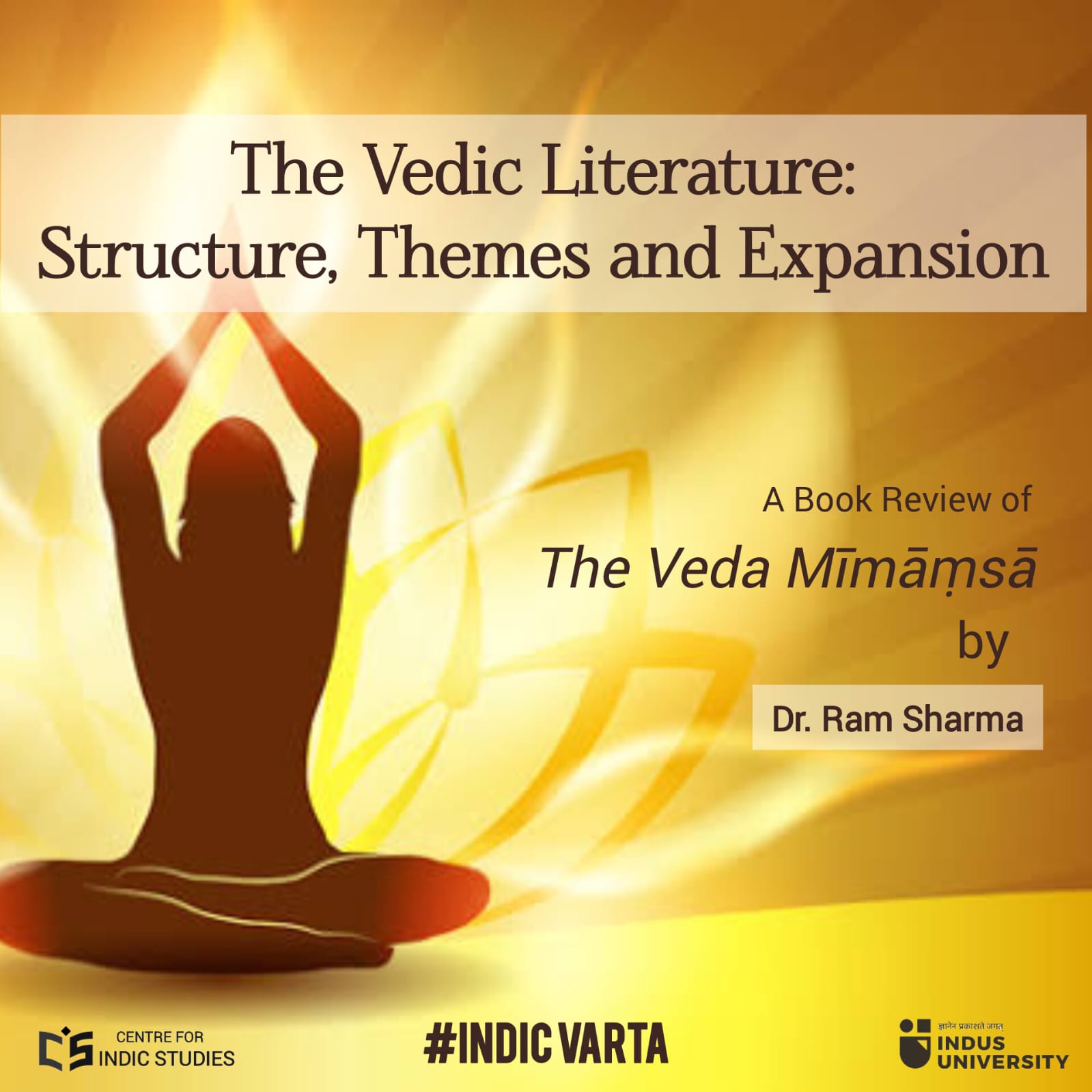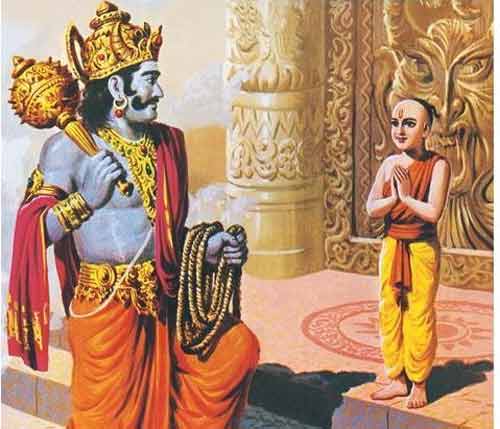- Visitor:36
- Published on:
Indian Influences in developing Aldous Huxley’s Thought: Part III
Salvation is man’s assussured possession, not a chance windfall. God is not a pie in the sky who appeared from nowhere at a particular time and became operative in human affairs; he has been active from the beginning. The great spiritual life resides in the heart and its truths are open to all sincere seekers. Man has known, possessed and lived those truths long before “revealed religions” were heard of.
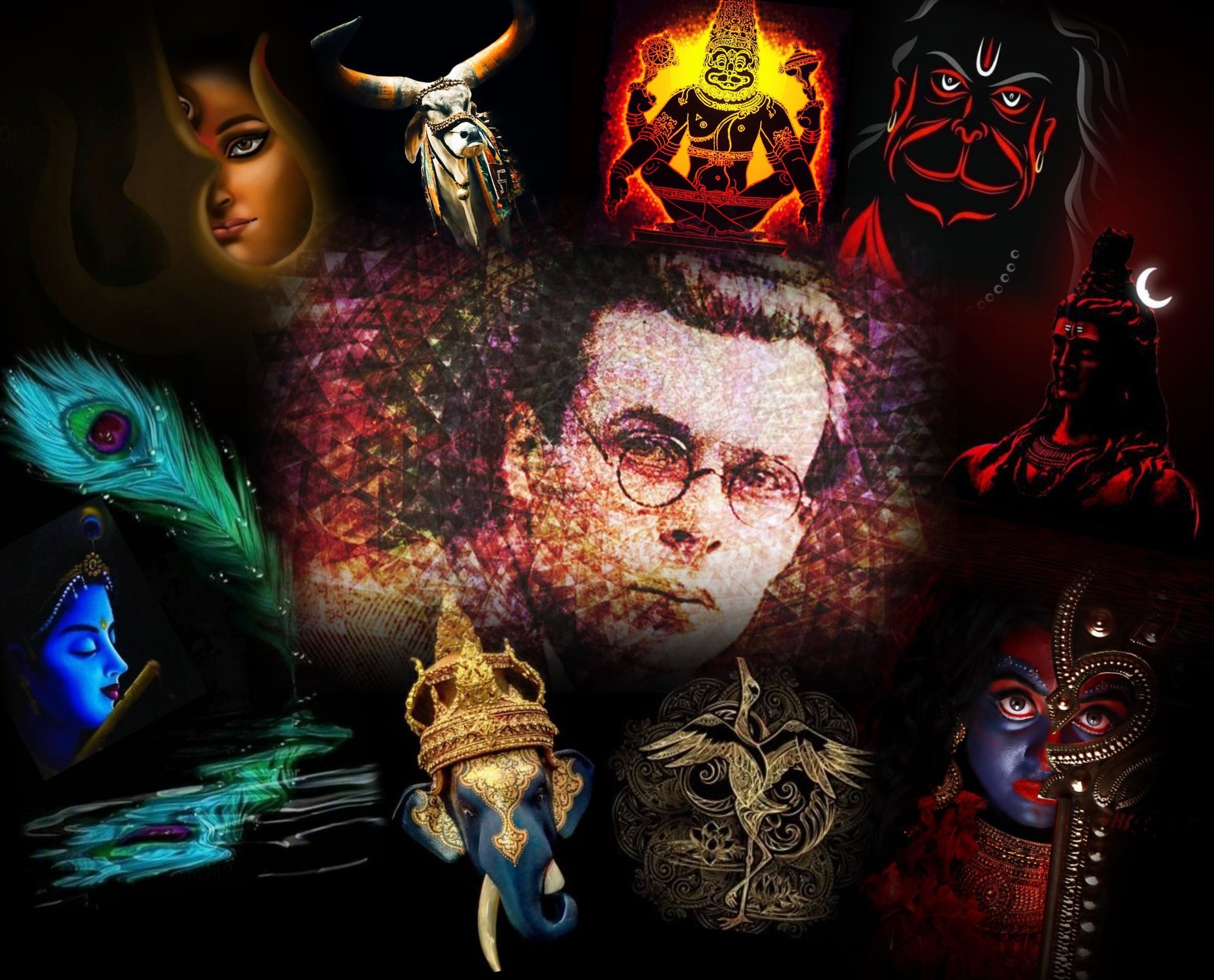
….continued from the last part
Self-Understanding
Huxley wrote all his future works under this new influence, which gave him a new orientation, a new power and purpose. Time Must Have A Stop, which belongs to this period, is probably his best novel and certainly the one which, as he himself says, he “most enjoyed doing”. Here he depicts a character, Bruno, who is the most moving and transforming. He is compassionate and understanding and speaks of the “unutterable weariness, the silly and degraded horror, of being merely yourself, of being only human”. He teaches impersonality and believes that man is more than human. He also teaches self-understanding. The lower life too has its unity. According to the Pâtañjala Yoga, attachment, anger, craving, Ego and Nescience go together and support each other. Following this teaching, Bruno says that the “shortest distance between two cravings is violence”, that the “square on lust is equal, so to speak, to the sum of the squares on vanity and idleness”. Therefore when someone commits an offence, it is useful to draw up not so much its balance-sheet of merits and demerits, but its “genealogy”, its family tree. One should trace its ancestors, its collaterals and its descendants, its antecedents and its necessary consequences. An eminently Yogic way of dealing with moral problems. In this novel, Huxley reestablishes God and says that Humanism is not enough. “To the surprise of Humanists,” he says, “the abolition of God left a perceptible void. But Nature abhors vacuums. Nation, Class and Party, Culture and Art have rushed in to fill the empty niche.” He had already learnt to see that “painting, music, literature, thought – they’re not enough”. They may take you for a time to the “other world” as he says in Eyeless in Gaza, but it “isn’t other enough”; he now wants something still “heavenlier, something less human”.
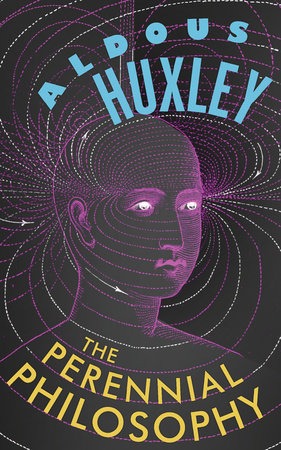
The Perennial Philosophy
During the same period, came The Perennial Philosophy, the Sanatana Dharma of the Hindus. It is an important book on an important subject with an important message and, therefore, needs a special mention. In this book, Huxley discusses the “minimum working hypothesis” of a truly spiritual and tolerant philosophy and its various supporting ideas. The very first chapter is on the Upanishadic message: That Thou Art; other chapters discuss Immortality and Survival, Non-attachment (anâsakti), Self-Knowledge (âtma-jñâna), Religion and Temperament (svadharma), all peculiarly Hindu concepts. It is a fashion to think that the Perennial Philosophy has no form and face (svarûpa) of it own, that it is compatible with all kinds of dogmas, belief-systems and practices, that it rejects nothing and makes no spiritual demands and calls for no change in belief or orientation and nobody need to give up anything in order to follow the tenets of Perennial Philosophy. But Huxley does not seem to agree; he thinks that the Perennial Philosophy has quite a face of its own and it makes great demands and is incompatible with many belief-systems. Discussing the problem concretely, he finds that both in its spirit and deeper conceptualization, the Perennial Philosophy is opposed to and is also opposed by the so-called “revealed religions” which make salvation and God’s truth dependent on a unique and single revelation in history, dependent on an authorized mediator, and makes it a privilege of a particular church or ummah. Perennial Philosophy recognizes no such historical fatality, no priviledged intermediaries, no surrogates, no authorized proxies. Spiritual life is a lawful process, not a lucky accident or piece of history, a happenstance. Salvation is man’s assussured possession, not a chance windfall. God is not a pie in the sky who appeared from nowhere at a particular time and became operative in human affairs; he has been active from the beginning. The great spiritual life resides in the heart and its truths are open to all sincere seekers. Man has known, possessed and lived those truths long before “revealed religions” were heard of.
Mysticism
However, Huxley tries his best and closely looks at Christianity and Islam for elements of Perennial Philosophy. In the process, he discovers that it is difficult to reconcile them with any developed form of mysticism. According to him, the difficulty arises, taking Christianity as an example, “because so much Roman and Protestant thinking was done by those very lawyers whom Christ regarded as being peculiarly incapable of understanding the True Nature of Things”. So under the circumstances, what does Huxley do? He meets the situation partly by leaving out these lawyers altogether; which has meant leaving out almost all the Popes, the Church Fathers, the Church Councils and most Church theologians. He has also to leave out all the Church dogmas: Sin, the historical Jesus, the Vicarious Atonement, the Missionary Vocation of the Church, and many such things. He quotes Paul but to prove the ‘not-1’ of Jesus, that is, for opposing the claims of a historical Jesus, which is unpardonable heresy according to all branches of mainstream Christianity. The other expedient Huxley adopts is that he quotes from unrepresentative mystics like Eckhart or he quote the unrepresentative statements of orthodox mystics like St. John of the Cross. Eckhart, for example, is the most quoted Christian mystic (32 times). But it is well known that his death saved him from the clutches of the Inquisition and that Pope John XXII had condemned him after his death for many of his sermons which contained “error or the blot of heresy”. We are assured by A. Pouplain, a Catholic theologian and author of The Graces of Interior Prayer, that the Church never reckoned Eckhart “amongst her mystics, or even amongst the mystics”. Huxley realizes his difficulty. He knows that mysticism is not native to Christianity and has been an uneasy implant from outside. In his Grey Eminence, he shows how through “neo-platonism and along with it, at several removes, the most valuable elements of Hindu religion, entered Christianity and became incorporated, as one of a number of oddly heterogeneous elements, into its scheme of thought and devotion”. In a lecture, Man and Religion, delivered in 1959 at the University of California at Santa Barbara, he goes over the subject again and shows the incompatibility of Christianity with mysticism. He says that religion as a system of beliefs is a profoundly different kind of religion, and it is the one which has been the most important in the West. He adds that the two types of religion – the religion of direct acquaintance with the divine and the religion of a system of beliefs – have coexisted in the West, but mystics have always formed a mino-rity in the midest of the official symbol-manipulating religions, and the relationship has been a rather uneasy symbiosis. The members of the official religion have tended to look upon the mystics as difficult, trouble-making people. They have made even puns about the name, calling mysticism ‘mystischism’ – a foggy, antinomian doctrine, which doesn’t conform easily to authority. He also quotes from a letter of Abbot John Chapman, a well-known Benedictine monk, in which he speaks on the “great difficulty of reconciling – not merely uniting – mysticism with Christianity”. In this lecture, Huxley also relates how mysticism acquired a “tolerated position” in Western Christianity by an early “pious fraud”. About the sixth century, a Neoplatonic writer, a convert to Christianity, wrote a book on Mystical Theology under the name of Dionysius the Areopagite, who was mistaken for one Dionysius who was the first disciple of St. Paul in Athens. Under this mistaken identity, the book was well received. In the ninth century, it was translated by John Scotus Erigena12 and thereafter it entered into the tradition of the Western Church. It was not until recent times that the fraud was recognized for what it was, but by then it was too late. Huxley says that “in one of the odd, ironical quirks of history, this curious bit of forgery played a very important and very beneficent part in the Western Christian tradition”. According to Huxley, St. John of the Cross was the last great representative of the Dionysian tradition of mysticism who was also orthodox. Huxley faces the same difficulty with Islam. It is strange that in a book containing hundreds of quotations (“about 40% is not written by me,” says Huxley about this book), there is not a single quotation from the Quran in support of the Perennial Philosophy. He only quotes from Rabia, Bayazid, Abu Sa’id and Rumi who do not properly represent even the sufi silsilas, the mainstream Islamic Sufism.
Are All Religions the Same?
Huxley was looking for elements of Perennial Philosophy and he acknowledged them wherever he found them. But in all his wide-faring and conscientious research, he found nothing to lead him to conclude that all religions are expressions of a Perennial Philosophy and therefore they are basically one.13 On the other hand while discussing Christianity and Islam, he found in them a great deal which was opposed to Perennial Philosophy, and he said so in so many words on many occasions.14 He finds these religions exclusive and dogmatic; he finds their cosmology and theology unsatisfactory and God-eclipsing. He finds that they are obsessed with time and events and values of the time and there is very little of the eternity-principle in them. This makes them intolerant and violent and Huxley is forced to refer on many occasions to the spirit of persecution that characterizes them. He observes that while historical religions have been violent, eternity-philosophies like “Hinduism and Buddhism have never been persecuting faiths, have preached almost no holy wars and have refrained from that proselytizing religious imperialism, which has gone hand in hand with the political and economic oppression of the coloured peoples.” Huxley tells us how the time-worshipping Catholicism institutes Inquisition and how it “bums and tortures in order to perpetuate a creed, a ritual and an ecclesiastico-politico-financial organization regarded as necessary to men’s eternal salvation”; he tells us how “Bible-worshipping Protestants fight long and savage wars, in order to make the world safe for what they fondly imagine to be the genuinely antique Christianity of apostolic times”. In his Grey Eminence, Huxley wishes that Catholicism knew Buddhism properly for in its teachings it “would have found the most salutary correctives for its strangely arbitrary theology, for its strain of primitive savagery inherited from the less desirable parts of Old Testament, for its incessant and dangerous preoccupations with torture and death, for its elaborately justified beliefs in the magic efficacy of rites and sacraments. But, alas, so far as the West was concerned, the Enlightened One was destined, until very recent times, to remain no more than the hero of an edifying fairy tale” – the reference is to the story of Barlaam and Josaphat, a garbled version of the life of Buddha in the person of a legendary Barlaam who becomes a Christian saint. Huxley also notices “Islam’s black record of holy wars and persecution – a record comparable to that of later Chidstianity”.
Personal God
Huxley continues to speculate on reasons that made Christianity and Islam violent and persecutory. One reason of course is because they are time-philosophies; another reason often mentioned by him is their belief in a personal God who is considered as “the Lord of hosts”, or a “commander-in-chief”. Illustrating the point he says: “The Moslems who invaded India brought with them the idea of a God who was not the order of the army of being, but its general. Bhakti towards this despotic person was associated with wholesale slaughter of Buddhists and Hindus. Similarly bhakti towards the personal God of Christianity has been associated, throughout the history of that religion, with the wholesale slaughter of pagans and the retail torture and murder of heretics.” Huxley adds “that it is the business of the rational idealist to harp continually upon this all-important fact”, so that “the evil tendencies which history shows to be inherent” in “belief in a personal deity” could be mitigated. Huxley repeats this idea often enough in his writings. At one place he says that much of the “folly and wickedness” of those who follow the Bible can be traced back to its “mistaken view of the world”. He says that “The Hebrews of the Bronze Age thought that the integrating principle of the universe was a kind of magnified human person, with all the feelings and passions of a human person. He was wrathful, for example, he was jealous, he was vindictive. This being so, there was no reason why his devotees should not be wrathful, jealous and vindictive. Among the Christians this primitive cosmology led to the burning of heretics and witches, the wholesale massacre of Albigensians, Catharists, Protestants, Catholics and a hundred other sects.”
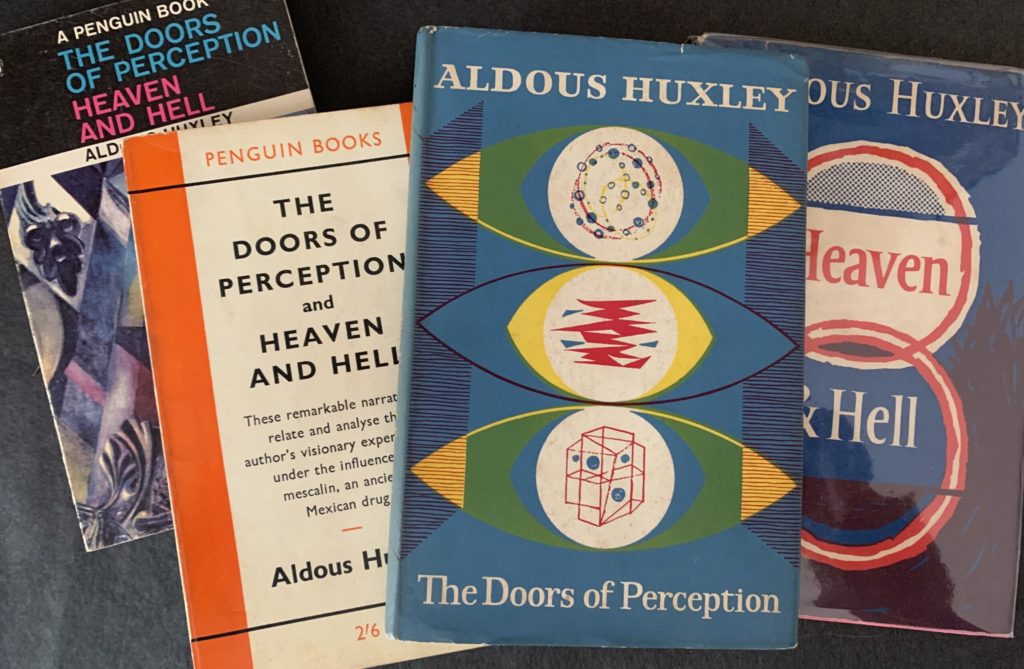
The Book
Huxley finds that it is no good to anybody to have Religions of the Book. -Writing to his brother, Julian Huxley he says: “One sees the immense good fortune of Buddhists in not being cursed with a sacred book or an impossible dogma”. A sole sacred book is undesirable for two reasons. First it sets up an external authority when the real authority is man’s reason and his own deeper spiritual intuition. Secondly these so-called holy books contain much that is undesirable. Huxley says that the early Christians made the enormous mistake of burdening themselves with the Old Testament, which contains, along with much fine poetry and sound morality, the history of the cruelties and treacheries of a Bronze-Age people, fighting for a place in the sun under the protection of its anthropomorphic tribal deity… Ancient ignorance had been sanctified as a revelation… Those whom it suited to be ignorant … could find in this treasure house of barbarous stupidity justifications for every crime and folly. Texts to justify such abominations as religious wars, the persecution of heretics, breaking of faith with unbelievers, could be found in the sacred books and were in fact used again and again throughout the whole history of the Christian Church…”
Pluralist View
Another reason advanced is that they lack a pluralist view of God, man and his nature or what the Hindus call the “doctrine of vocation”. This makes all the difference. According to this doctrine, “the Indians admit the right of individuals with different dharmas to worship different aspects or conceptions of the divine. Hence the almost total absence, among Hindus and Buddhists, of bloody persecutions, religious wars and proselytizing imperialism.”
Animal World
Huxley notices the same difference in the treatment of the animal kingdom by the two philsophies. He says that while great eternityphilosophies like Hinduism and Buddhism have taught a morality inculcating kindness to animals, time-philosophies like “Judaism and orthodox Christianity taught that animals might be used as things, for the realization of man’s temporal ends. Even St. Francis’ attitude towards the brute creation was not entirely unequivocal. True, he converted a wolf and preached sermons to birds; but when brother Juniper, a beloved disciple of his, hacked the feet off a living pig in order to satisfy a man’s craving for fried trotters, the saint merely blamed his disciple’s intemperate zeal in damaging a valuable property. It was not until the nineteenth century, when orthodox Christianity had lost much of its power over European minds, that the idea that it might be a good thing to behave humanely towards animals began to make headway. This new morality was correlated with the new interest in nature which had been stimulated by the romantic poets and the men of science. Because it was not founded upon an eternityphilosophy, a doctrine of divinity dwelling in all living creatures, the modern movement in favour of kindness to animals was and is perfectly compatible with intolerance, persecution and systematic cruelty towards human being. Young Nazis are taught to be gentle with dogs and cats, ruthless with Jews. That is because Nazism is a typical time-philosophy, which regards the ultimate good as existing, not in eternity, but in the future. Jews are, ex hypothesi, obstacles in the way of the realization of the supreme good; dogs and cats are not.”
Vegetarian Diet
Some may regard the dietic question too lowly and think that it should not rub shoulders with such sublime concepts as brahman, Sûnya, God and Soul. But in Indian spirituality, it holds a high place. Dietary is more than gastronomy; it involves fundamental attitudes and views. Vegetarianism also represents a great cultural and religious value of India and it has found emphasis wherever Indian religious influence has gone. “Vegetarianism is one of the priceless gifts of Hinduism,” as Mahatma Gandhi says. Today under this influence, it is already making an appeal in the West on more than health grounds. It stands high in the spiritual discipline of all those movements which follow Indian inspiration. Following the Indian lead, Huxley finds a “correlation between religion and diet”. He even sees a close link between the Semitic “personal God” and what His followers cat. In his Eyeless In Gaza, Huxley says: “Christians eat meat, drink alcohol, smoke tobacco; and Christianity exalts personality… teaches that God feels anger and approves the persecution of heretics. It’s the same with Jews and the Moslems. Kosher and an indignant Jehovah. Mutton and beef and personal survival among the houris, avenging Allah and holy wars. Now look at the Buddhists. Vegetables and water… They don’t exalt personality; they try to transcend it… What worlds away from Jehovah… ! The fact is, of course, that we think as we eat.” Huxley says through the mouth of a doctor of Buddhist persuasion that frozen meat, by being widely available, has become the “greatest enemy of Christianity”. It has filled the Christians with “scepticism and despair”, so that only “the most violent stimuli will rouse them to purposive activity, and what’s worse, the only activity they undertake is diabolic”. The doctor tells Anthony Beavis, his meat-eating patient, that the latter’s “intestines are ripe for fascism”.
To be continued…
Bibliography:
Swarup, Ram, 2000. Chapter 5 Development in Huxley’s Thought: Hindu-Buddhist Influences, On Hinduism Reviews and Reflections.
Center for Indic Studies is now on Telegram. For regular updates on Indic Varta, Indic Talks and Indic Courses at CIS, please subscribe to our telegram channel !
- 18 min read
- 0
- 0







